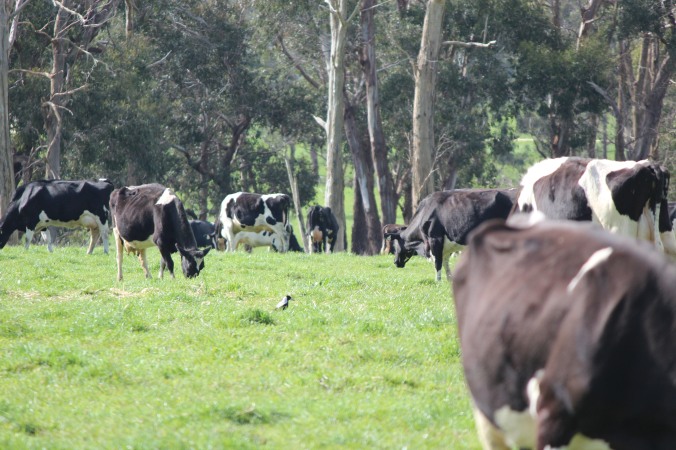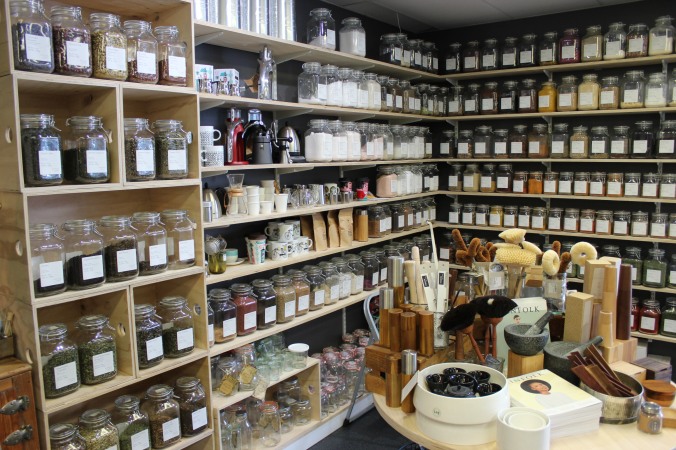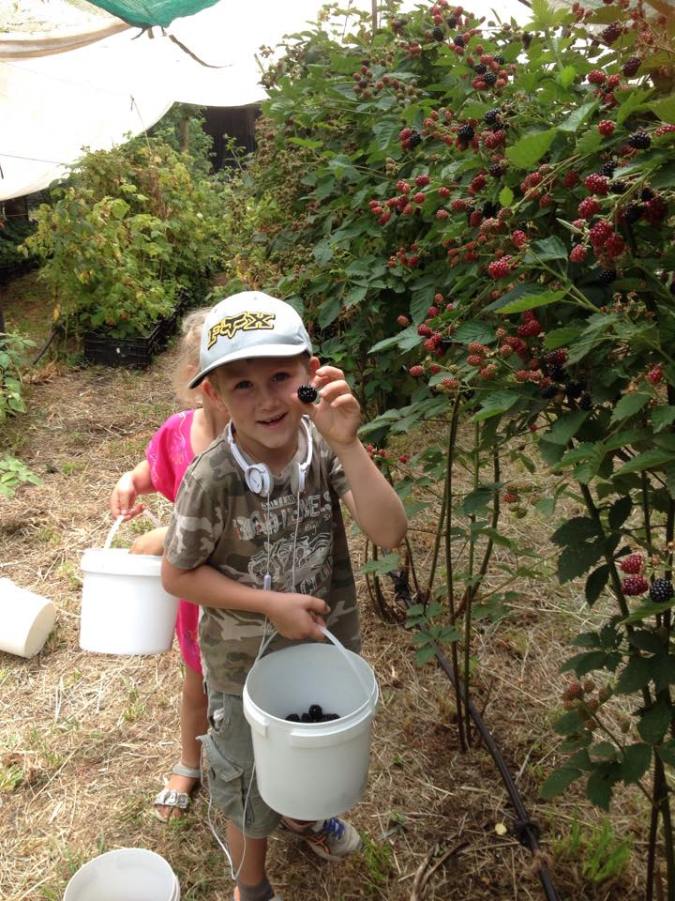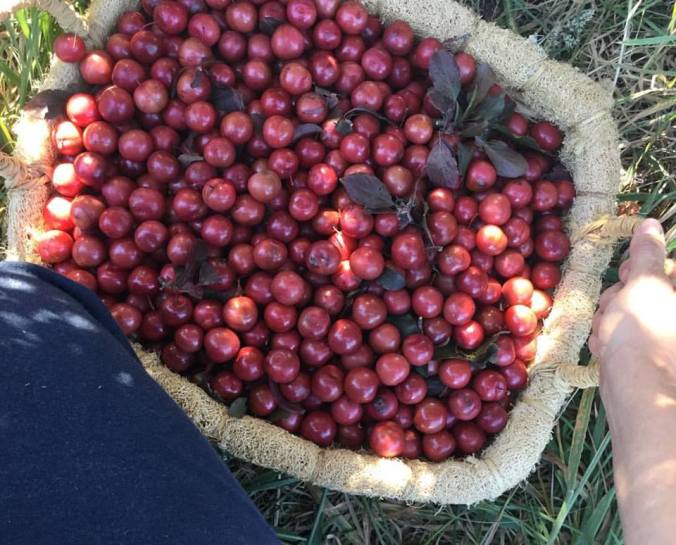Can you cut 1 Tonne of carbon pollution out of your life?
Take the challengeThe following is a guest post from Tammy Logan of Gippsland Unwrapped. She lives on a farm, is a mother, a passionate eco-warrior and has a degree in conservation biology. After completing Plastic Free July Tammy realised that she did have a choice about how she lived her life or voted with her dollar. And so, Gippsland Unwrapped was born. It's a blog about living a life that leaves less of an impact on the world.
Your guide to living zero waste without bulk stores
Do you like the idea of living plastic free and zero waste but are discouraged by the lack of bulk stores in your area? I was too to begin with, but I was determined not to give up. Now my family of four produces about one handful of landfill and one large bucket of recycling per week. There is still stuff we're working on but we're getting there.

We live on a dairy farm in Gippsland, Victoria, Australia which is a rural area characterised by small geographically isolated communities and a few large regional centres. I am yet to hear of a bulk store in Gippsland, the closest being in Melbourne which is a minimum of one hour away by road or rail. I feel the lack of bulk stores, which sell a plethora of package-free food and other products, is the only difference between country and city zero waste living.

My town: tractors outside the pub. Photo courtesy of Poowong Hotel.
There are a number of things I do to make up for the lack of bulk stores in our area, which you can do to. I won't lie, it does require effort, organisation, and time as any lifestyle change does, but it is totally doable and very fulfilling. Whilst I have taken advantage of the benefits of living in a rural area, this guide applies to anyone wishing to significantly reduce their waste.
Here is your guide to living plastic free and zero waste without bulk stores:
Pare back
Work out what in your life is actually necessary and what isn't. Don't buy the stuff that isn't because it doesn't contribute to your happiness, it just contributes to landfill during its stages of production, disposal of the packaging, and disposal of the product at the end of its life. I'm not talking about depriving yourself, just keep in mind that happiness is a mindset, not a collection of stuff.
When we went from two full-time wages to one with the birth of our first child, and because I was too tired for years to really care about shopping or extravagant beauty routines, I realised that nothing dramatic happens if you don't have the latest gadgets or miracle beauty products.

You can also apply the paring back principle to food. We do have a problem in this country with people eating too much processed and packaged food, so make an assessment about which packaged food products you can stop buying. Plus, if you are always throwing out wasted food, then maybe you shouldn't buy so much of it.
Think outside the square
Be an inventive problem solver. At the cinema we asked for our soft drinks to go into our stainless steel containers rather than using disposable packaging. Why not take a large container to an ice creamery to be filled and kept in the freezer at home? If it is one thing I have learnt on this journey, it is that we do have choices and most problems can be solved.
Look harder and talk more
Word of mouth and searching through numerous local stores has helped me find many things that are actually sold in bulk or package free! I am ashamed to say that I had lost touch with small local businesses and no longer knew what was available in the towns surrounding me. As a society we have become used to shopping at one-stop giant convenience stores. It's no wonder then that when we can't find a large bulk convenience store, we think zero waste living is an impossibility (technically it is but we can work towards it as much as possible). Whilst it would be handy (I have kids so I get it), it is not necessary and I feel good about spending my money in the stores that are owned by the people I went to school with.

I have found five stores so far in a 30-minute radius from where I live that are meeting my needs. We tie our visits in with other trips we need to make and I buy as much as I can to last a few weeks or even months. I do this to save fuel and time, but it can make zero waste living seem more expensive. However, I have found it to be cheaper in the long run.

Sometimes it is not recommended to buy food in large amounts because of the risk of wastage but if you store the food in jars and containers it will last a long time. It is about finding out what works for you. I have also found having a pantry full of ingredients means I can make things whenever I feel like it.

When in doubt find out
Make friends with the butcher, the baker, the grocer, the delicatessen, and other local store managers and owners. Tell them about your needs, they are always willing to help if they can. I have solved so many of my problems, like finding cheese plastic free, by asking questions and having a conversation.
I discovered that some stores, like health food shops, do the packaging themselves and are happy for you to bring your bags and containers to collect from the bulk quantities of goods out the back. I've also had several local product manufacturers suggest I collect their product direct from them before it gets packaged, for example washing powder and cleaning products. If more and more of us start requesting no packaging then change will happen, and at the local level it can happen quicker.

Rediscover markets
I love the thrill of a zero waste discovery, and markets have not disappointed. I found a lady who lives very close to me who sells her natural cleaning and body care products in bulk. I have found blocks of unpackaged bees wax direct from the bee keeper. It is also easy to find gifts and other package free items, often beautifully hand crafted and sometimes secondhand. Farmers markets have the added benefit of getting your produce without plastic stickers and other packaging. And markets give you a valuable opportunity to know who made the product or grew your food, and how.


Go direct to the producer
Before I found bees wax at the market (it gets used in various beauty product recipes), I looked up bee keepers to find out who would be willing to sell their bees wax to me.
We used to buy bags of frozen berries and plastic punnets of strawberries so this time I went straight to the berry farms to collect the berries in our own containers. We have frozen them in jars so we can enjoy them for as long as possible.

There are other farmers such as apple and nut growers which offer farm gate sales too. Being in Gippsland, we are in the heart of food production. There are resources such as the Southern Gippsland Food Map which show you which producers exist in the region.
Have a go at growing your own
We generally have more space for growing in rural areas, but there are many examples how to grow in small spaces, as well as community gardens you could join. It's definitely worth having a go. I'm trying to grow a lot of food but one thing I really wanted to do was grow lots of peas to keep in the freezer. I have a few recipes that I really like to use peas in but I have been leaving them out because I'd have to buy them frozen in a plastic bag. Unfortunately, I haven't done too well so I'm thinking about how to get round this issue by talking to my grocer. I also love cherry tomatoes but they always come in plastic punnets, it's so good to be able to pick them fresh and gobble them up. Keeping chickens is also worth considering as they provide eggs and consume food scraps amongst other good things. It means you won't be using up egg cartons.

Trade
Whilst I might not be good at growing peas, others might be, so I can trade with them something like my Kombucha SCOBYs which I am good at making. I also trade seeds and plants with friends to grow my own and avoid the plastic containers. Anything is up for trade and the value of items depends on the people involved in the transaction. If you are growing your own food and have excess you can also take it to a produce swap to trade for something you do need more of. The swaps usually operate very informally and are a great source of learning growing and cooking tips too. If you can't find one near you – start your own. That's what I did in Poowong and it ran for four years.
Read more: How and where to barter produce you've grown at home

Forage
Who doesn't love the thrill of foraging? Finding wild food for yourself or free food offered by someone else connects you with your local environment and community. There are websites like Ripe Near Me helping to facilitate access to free food.


Work together and create bulk buying groups
Don't wait for someone else to provide you with bulk options. Use your initiative and make it happen. A friend of mine told me about some women working together to bring plastic free, bulk toilet paper to our area. I could have ordered the toilet paper online myself but by joining the bulk buy group I get a rather large discount. I've also been able to find friends in my town who are interested in similar projects and we're hoping to organise similar bulk deals for various things in 2016. I will let you know how we go.
Read more: Why we love food co-ops
Connect with local sustainability groups
Local sustainability groups provide a wealth of information. If you are in Gippsland you could use the Sustainability Gippslanddirectory to help you find groups you are interested in. The Baw Baw Sustainability Network in my area is working on organising a bulk buy group. The group operated in the past for quite a while and are hoping to continue into the future. There's just a bit of organising to do. If you are interested, let them know and keep an eye on their website. If you are not near the Baw Baw group then why not start one with your local sustainability group?
Make it from scratch
Finally, there is always the option of making things from scratch. To increase the range of food we eat and to avoid a big shock to the system I started making muesli bars, potato crisps, slices, and so on. I can't find these sorts of treats unpackaged like you might do in a bulk store so if we want to eat them, I need to make them. Oh, I can get some donuts and slices from the bakery, and the health food shop has sultanas coated in yoghurt and that sort of thing. Overall, the reduction in processed, packaged foods means we are healthier.

I hope this post has revealed how many other social, environmental and economic benefits come from a zero waste lifestyle. It has made me shop more local and eat more seasonal. It reconnects you with food production and your community. You find like-minded people and forge new friendships. This is fulfilling and it helps maintain the momentum for zero waste living.
This blog is about sharing information, so if you have anything to add to this list or if you do start your own groups and projects then please let me know. I'd really love to hear about them and help you spread the word.
Header Image: Shutterstock
All other images: Tammy Logan (unless specified)
Keep up with Gippsland Unwrapped:
Read about other 1 Million Women faves that are choosing a life of less impact:
How to have a 'no waste' life with a newborn
Lauren Singer can fit two years worth of trash into a mason jar
The Rogue Ginger has lived two years plastic free (you can too)
